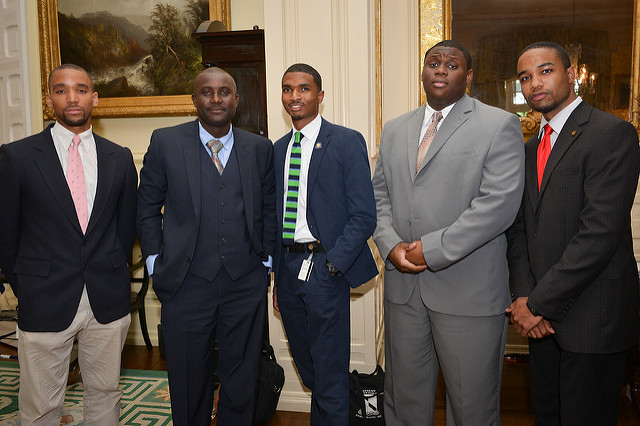The case for a fixed 15% fee on all student loans

This article was written by Bruce Chapman
The Grattan Institute has proposed that a 15% surcharge should be added to the Higher Education Loan Program (HELP) debt of undergraduate and college students.
The surcharge is not an up front fee. It is a fee that is added to the existing debt and paid later, depending on a graduate’s future income. Repayments are only made if a graduate’s income exceeds about A$56,000 per annum.
This flat rate means that, while a graduate’s loan would initially increase by 15%, that figure would not get bigger over time.
Currently full-fee undergraduates pay a 25% fee on their loans, vocational education students a 20% fee, while postgraduate and government-supported students pay no loan fee. There is no obvious reason for these disparities and they seem to have evolved through a lack of policy attention by many governments.
So for administrative simplicity and coherence it would seem a good idea that all HELP loans are treated in the same way.
Not a radical idea
The 15% surcharge might seem like a radical reform idea, but the notion of a surcharge actually fits comfortably with the underlying economics of the HELP system, and was part of the original HECS design of 1989.
Benefits to low income earners
While an increase in the size of the loan may raise the ire of prospective students, it is important to remember that this does not leave those who go on to earn a lower income any worse off relative to their wealthier counterparts.
In fact they would be better off under this reform, because there would be no financial advantage to paying off the loan quickly. This is not currently the case.
The lower income earners who take longer to pay off their loans as the system is now are also penalised with having to pay back more interest over time.
In this sense, the change will act as a kind of subsidy on the loans of lower income earners, negating some of the cost and keeping loans from spiralling out of control.
Benefits to the government
A starting point is that the government already passes a considerable discount to students by indexing the loans by the CPI instead of the government’s own cost of borrowing.
While in the past the suggestion of imposing a real, and much higher rate of interest on the loans has been floated, it has been demonstrated that this is not the most equitable solution.
While a 15% spike in underlying cost may understandably attract headlines, this isn’t out of the blue. Having a surcharge on HELP debts for normal undergraduates was part of the original HECS design, but it took the form of a 20% discount for those who chose to pay up front.
This is just the other side of the coin of a surcharge, and was part of the original policy to cover the interest rate issue explained above.
Also, there are already surcharges on other HELP debts, and these are currently (and strangely) different depending on the nature of the tertiary education that people are undertaking.
Why 15% fee?
However, these points in favour of a surcharge should not be conflated with a judgement concerning what is the “correct” level of HELP charges in total.
This means that simply adding a 15% surcharge is an implicit recognition that the debts for graduates are too low at the moment, and should be increased.
The case for a surcharge should be made independently from the issue of what the correct overall level of a charge should be.
The economic case of the Grattan argument for a surcharge stands without reference to any budgetary concerns related to the level of HECS debts, which is a considerably more complicated (and ultimately political) judgement.
![]()
Bruce Chapman, Director, Policy Impact, Crawford School of Economics and Government, Australian National University
This article was originally published on The Conversation. Read the original article.




